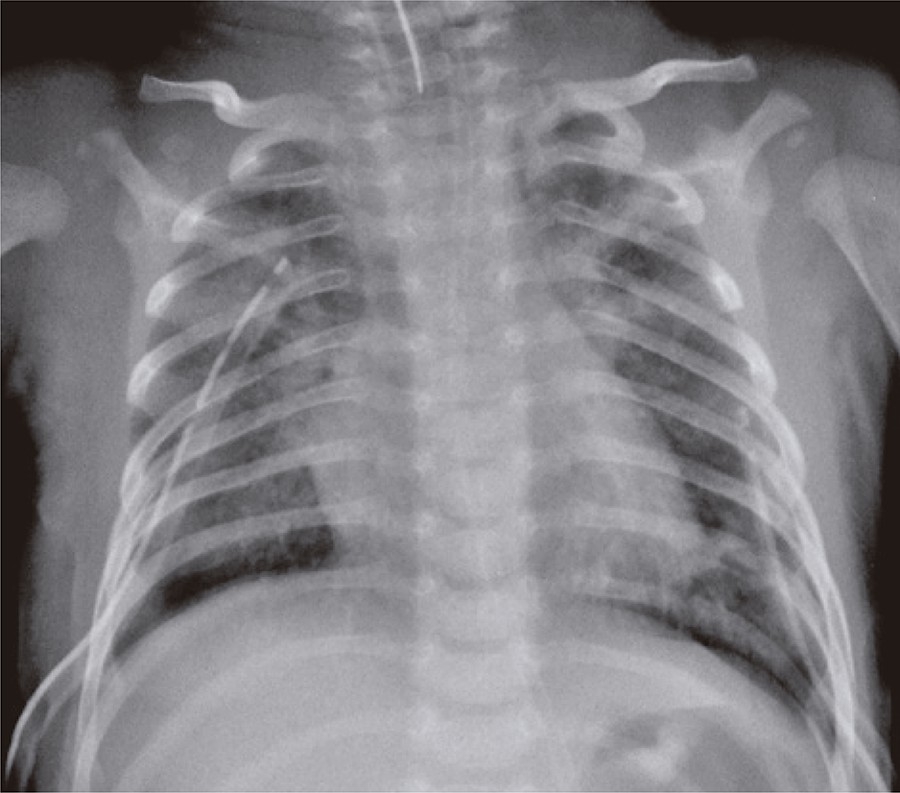einstein (São Paulo). 02/May/2019;17(3):eAI4516.
Pneumopericardium: a rare case of cardiorespiratory arrest
DOI: 10.31744/einstein_journal/2019AI4516
A 37-days-old baby boy, previously healthy and without intercurrences during perinatal period, who was admitted in pediatric intensive care unit with acute ventilator insufficiency because of viral bronchiolitis due to respiratory syncytial virus. The patient underwent a tracheal intubation by clinical deterioration, a rapid sequence intubation using fentanyl, ketamine and succinylcholine. During the procedure, he had cough, chest rigidity, reduction of respiratory sounds and poor tissue perfusion. His clinical picture worsened and resulted in cardiorespiratory arrest in asystole that was reverted with chest compressions and two doses of intravenous epinephrine. Subsequently, the patient showed a new cardiorespiratory arrest, and he was under risk for hypertensive pneumothorax. A relief thoracentesis was carried out and significant improvement was observed in respiratory sound and signs of poor peripheral perfusion. After bilateral thoracic drainage the patient had ventilator parameters reduced, however, this reduction remained with impaired tissue perfusion, mottled skin, fine pulses, hypotension, and cardiac auscultation with hypophonesis sound. The chest radiology exam confirmed hypertensive pneumopericardium () that resolved with pericardiocenthesis and drainage of 40mL of pericardium air space (). The patient had good clinical progress after underwent the procedure, remained in mechanical ventilation for 6 days, and he was discharged 13 days after the procedure without apparent sequelae.
[…]
1,304


